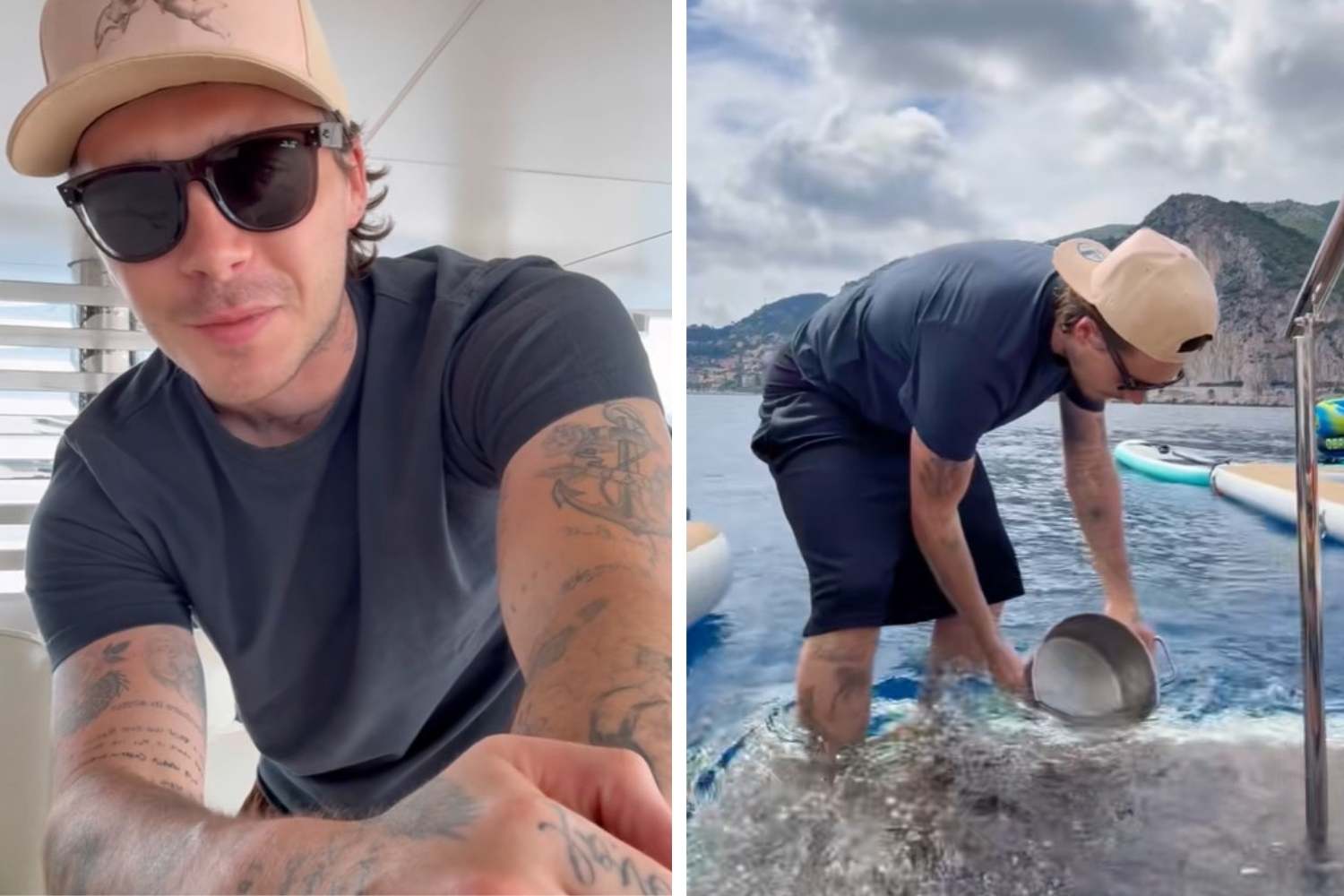Brooklyn Beckham's pasta video with seawater stirred debate, but experts warn it's risky, unhealthy, and not sustainable.

@Brooklyn Beckham/TikTok
When Brooklyn Beckham, son of the legendary David and Victoria Beckham, shared a cooking video on TikTok a couple of days ago, it might have seemed like just another laid-back influencer moment. The 26-year-old was aboard a luxury yacht, casually preparing a simple plate of pasta with tomato sauce—a dish many of us could make with our eyes closed.
But it wasn’t the yacht or the recipe that sparked conversation. What grabbed attention was his unconventional choice of ingredient: instead of boiling the spaghetti in fresh water, Brooklyn used seawater scooped straight from the ocean.
Some viewers called it genius. Others weren’t so generous.
The illusion of a “green” gesture
At first glance, the idea might almost sound sensible. The sea is salty—so why not use it instead of tap water and save a pinch of table salt? Especially in a world increasingly attuned to water conservation and eco-conscious behavior, it might even seem like a clever workaround. But here’s the thing: just because something seems green, doesn’t mean it is.
@brooklynbeckham Tomato pasta with @Cloud23
Seawater, despite its shimmering clarity on Instagram, is not safe for cooking. It’s often teeming with E. coli bacteria, viruses, microplastics, heavy metals, and petroleum residues. And if you’re pulling it from near a boat? Even worse. As infectious disease experts explain, the areas surrounding yachts and marinas are usually the most polluted, due to waste discharge and bilge pump runoff.
There’s also the salt factor. Seawater contains about 1.2 ounces of salt per quart (roughly 35 grams per liter)—a concentration that’s far too high for human consumption. Cooking with such salty water doesn’t just risk ruining your pasta; it could overload your kidneys and stress your body with excess sodium. Without diluting it significantly, it’s neither healthy nor remotely appetizing.
The social media loop: same sea, same mistake
This isn’t the first time we’ve seen the seawater trend resurface. Each summer, like clockwork, someone cooks pasta with ocean water, collects a few viral hits, and sparks yet another wave of divided opinions.
And while some might see it as harmless content, there’s a bigger concern. These kinds of posts risk normalizing unsafe or ill-informed practices, especially among younger viewers or those who lack knowledge about marine pollution and health risks.
Maybe Brooklyn’s intention was symbolic—a gentle nudge toward reducing freshwater waste. That’s a noble cause, especially in an era when climate change is forcing us to rethink our habits. But here’s a hard truth: being eco-friendly doesn’t mean playing amateur chemist. Respecting the environment also means understanding its boundaries, its vulnerabilities, and how it interacts with our bodies.
The weight of influence
Brooklyn Beckham, like many influencers, has a platform that stretches far beyond his kitchen. With millions of eyes on him, even the simplest gesture can send a message. That’s not a burden—it’s a responsibility.
And while no one expects social media stars to hold PhDs in microbiology, perhaps it’s worth pausing before turning a pot of seawater into a statement. Not every “green” idea is safe. Not every viral trend deserves replication.
Cooking with seawater might look aesthetic. But if you’re chasing flavor, health, or true sustainability? Stick to the faucet.
Source: Brooklyn Beckham TikTok
